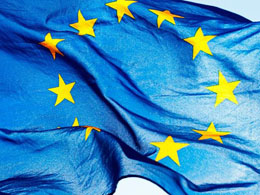
European Union Adopts Tighter Bitcoin Controls Amid Terrorism Crackdown
The executive branch of the European Union today adopted a proposal meant to make it more difficult for terrorists and money-launderers to operate by revising existing anti-money laundering (AML) protections. Tucked away in the list of changes proposed by the European Commission is a measure specifically designed to prevent terrorists from using virtual currencies and other financial tools deemed as risk for abuse, such as prepaid cards. Under the terms of the proposal, virtual currency exchanges and custodian wallet providers will be brought under the purvey of the EU's Anti-Money....
Related News
The European Council of the EU has set forth guidelines in which it will seek to regulate virtual currencies and curb terrorist funding opportunities. In light of several high terror attacks within the EU in 2015, many regulators and citizens called for tighter surveillance and anti-terrorism operations. Calls for tighter control over virtual currencies after reports were released when it was suggested that some terrorists might have benefited from using Bitcoin to fund their activities. While such claims that terrorists have a unique advantage in using Bitcoin, the European Council is....
Interior and justice ministers from the European Union have organized a crisis meeting this Friday to plan an effective crackdown of anonymous payment method and virtual currencies to curb terrorism funding. In a direct reaction to the recent Paris terror attacks, European Union countries have planned an emergency meeting this Friday in Brussels, Belgium, to convene and collaborate on ideas to implement and strengthen controls over electronic and anonymous payment methods. A draft conclusion obtained by Reuters notes that EU ministers will urge EU's executive arm - the European Commission....
European Union (EU) countries will seek a crackdown on bitcoin during crisis talks tomorrow, in the wake of last week's Paris attacks, Reuters reports. A draft document seen by Reuters said that EU member countries were planning to crack down on digital currencies and anonymous payment systems made via pre-paid cards in a bid to curb terrorism financing. EU justice and interior ministers who will attend the meeting are expected to urge the European Commission to come up with measures to "strengthen controls of non-banking payment methods such as electronic/anonymous payments and virtual....
The European Central Bank (ECB) has urged its members to impose tighter controls on the activities of companies that exchange virtual currencies or custody them for their clients. The comments come as the European Union moves toward extending the economic bloc's anti-money laundering statutes to cover digital currency activities. At the same time, the ECB has been conducting its own investigations of both digital currencies like bitcoin as well as its underlying technology. Perhaps most notable in the ECB’s legal opinion, published earlier this week, is its assertion that the broader....
The Christian Social Union (CSU), a leading Christian democratic and conservative political party in Bavaria, Germany is due to issue a paper detailing effective ways to combat terrorism that will include financial restraints, as the party sees it. The paper will also include regulation for all virtual currencies including Bitcoin. As reported by German publication Die Welt, The paper is titled “Fighting Terrorism Effectively” and will be issued at a closed-doors CSU party meeting on Wednesday, January 6th. A major German political party in Bavaria, the Christian Social Union, will....





